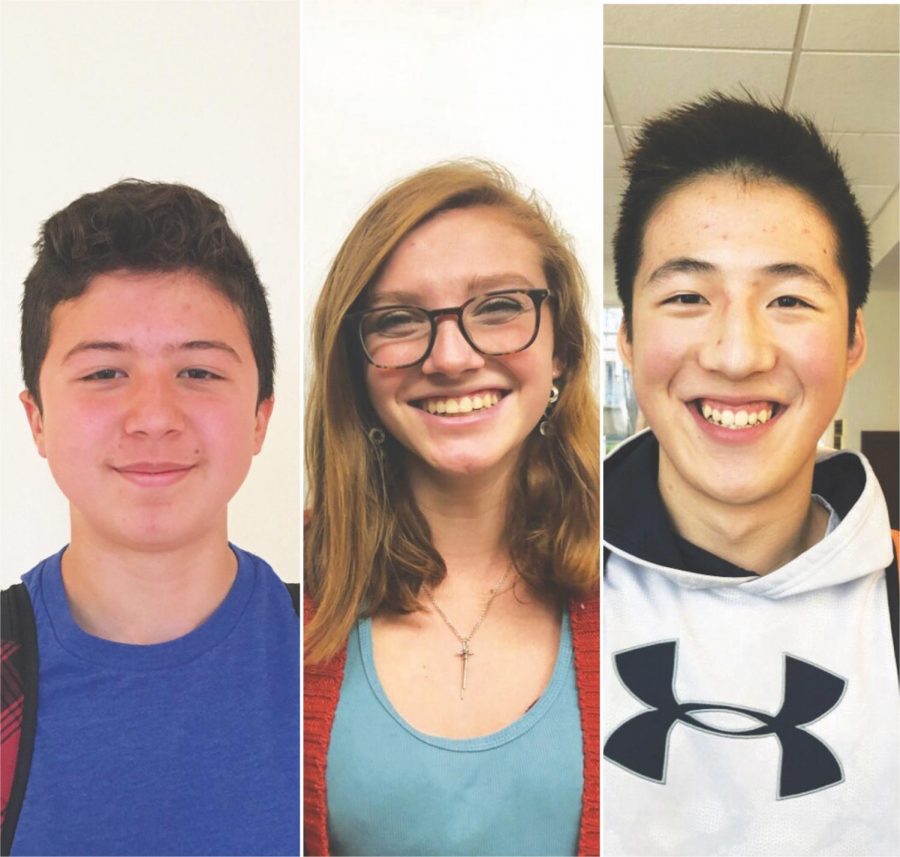Bilingual Students Find Challenge in Language Class
Language program adapts to fit needs of students
From left, Sebastian Pliego ’22, Lexie Dietz ’20, Tommy Pan ’21 enjoy the benefits of being bilingual
With a vast spectrum of student language expertise, the language department has shifted to meet the needs of bilingual students. Students may continue to study the language they already know, or start a new one, but their past experience continues to be beneficial.
Sebastian Pliego ’22 learned to speak Spanish fluently from his dad. He took Spanish throughout Middle School and continues to enjoy it today. Now in Spanish V, he says that, “[being bilingual] definitely gives me an advantage, [but] you still gotta do what you’re assigned to do.”
Lexie Dietz ‘20, a former French immersion student, is currently taking post-AP French. Her mom is also a French speaker, and similar to Sebastian, she finds that “[French class] is easier for me than someone who didn’t go to French immersion, but you still have to put in the work to analyze it.” She also points out that the higher level language classes are heavily weighted towards culture and interpretation. Lexie’s French immersion also helped her study independently for the AP French test without taking AP French.
In third grade, Tommy Pan ‘21 moved from China to Minnesota. He learned English simply by listening to other people speak it. When coming to Blake, he chose to take French. He says that, “Blake has a very good language program,” which has helped him get used to learning a language in the classroom. Despite the substantial difference between Chinese and French, he still enjoys his current class, French IV.
Due to the range of language capabilities in students entering the upper school, the language department has had to expand and change.
Due to the range of language capabilities entering Blake, the language department has had to expand and change. Agnes Matheson, the chair of the language department and pentalingual in French, Catalan, English, Spanish, Portuguese, says, “We are always open to [add levels or even new languages] if there’s a significant number of students.”
While these changes to accommodate kids who have advanced language experience are not a very common occurrence, the language department is always adapting to meet the needs of students. Matheson explains, “we have added levels because of kids coming from immersion programs.” The most recent of these is the extension of AP French, as well as a Chinese Post-AP option. In the absence of a post-AP class, students can take another year of AP which uses a 2-year rotating curriculum.
Matheson is happy to make those changes, due to the benefits these students bring. She says, “[bilingual students] contribute significantly to the richness of our community.”

I started writing for Spectrum my freshman year, and now this is my third year editing. I am Breaking News Section Editor and my favorite part about writing...

Hey Sisters ! I have the lovely job of editing and creating Photos for the paper, and I FRICKEN' love it. I love Lady Bird and I HATE yogurt. That's all...


